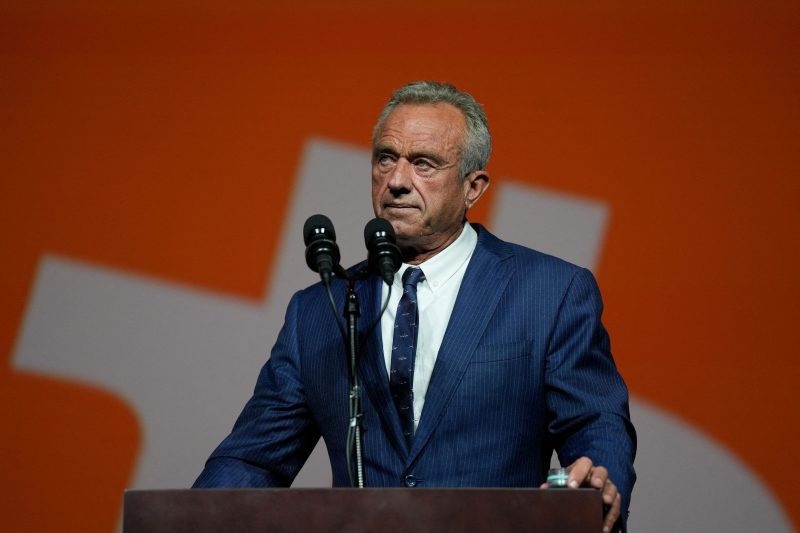The recent legal battle involving Robert F. Kennedy Jr.’s inclusion on the North Carolina ballots has sparked controversy and raised questions about the electoral process. Kennedy initially fought to get on the ballots but is now seeking to get off them. This turn of events has left many puzzled and curious about the motives behind his actions.
Kennedy’s decision to enter the race in North Carolina was met with mixed reactions. Supporters hailed his entry as a bold move to challenge the political establishment and bring fresh perspectives to the table. However, opponents raised concerns about his qualifications and suitability for the role. The ensuing legal battle only added fuel to the fire, with both sides digging in their heels and preparing for a protracted legal fight.
The crux of the matter lies in the rules and regulations governing candidate eligibility in North Carolina. Kennedy’s legal team argued that the requirements for ballot access were too stringent and potentially unconstitutional. They claimed that the state’s laws infringed upon Kennedy’s rights as a candidate and sought relief from the courts. This move further complicated an already convoluted situation and stirred up a hornet’s nest of legal wrangling.
As the legal battle unfolds, the public is left to ponder the implications of Kennedy’s abrupt change of heart. Was his initial decision to run a genuinely held belief, or was it driven by ulterior motives? Some speculate that external pressure or internal conflicts may have prompted Kennedy to reverse course and seek to withdraw from the race. Others suggest that his motivations may be purely strategic, aimed at gaining a tactical advantage in the political arena.
The lawsuit filed to remove Kennedy’s name from the ballots underscores the complexities and challenges of the electoral process. It highlights the delicate balance between upholding democratic principles and ensuring fair and equitable access to the ballot. As the legal proceedings play out, voters are left with a sense of uncertainty and unease about the integrity of the electoral system and the motivations of those seeking public office.
In conclusion, Robert F. Kennedy Jr.’s legal battle over his inclusion on the North Carolina ballots raises important questions about the electoral process and the conduct of candidates. The twists and turns of this saga serve as a reminder of the complexities and challenges inherent in our democratic system. Only time will tell how this legal drama unfolds and what impact it will have on the upcoming elections.

